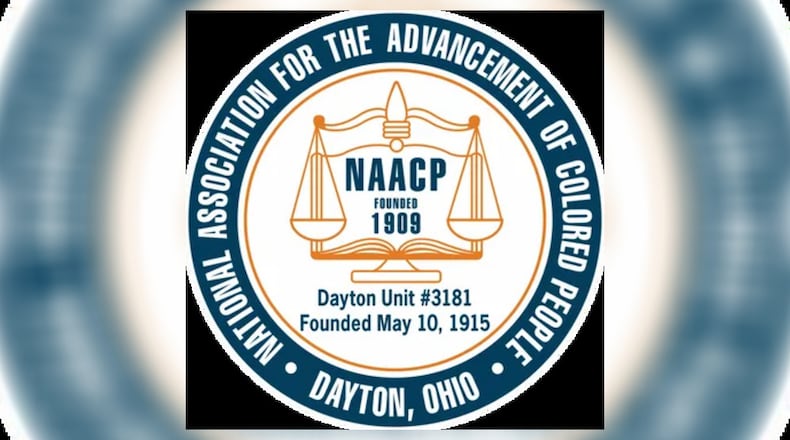While the Dayton Chapter of the NAACP was chartered 109 years ago, it’s history dates further back than that. A series of events led to the local chapter forming.
Here is a look at those early days and the people involved in paving the way for the chapters success through the years.
A warm evening address
One of the early members of the NAACP was Dr. Joel E. Spingarn, of New York, chairman of the board of directors of the organization.
While on a tour on behalf of the NAACP, he made a stop in Dayton on Jan. 14, 1915, where he made a speech at the YMCA to the Greater Dayton Association, a conglomeration of several smaller associations, agencies and philanthropic societies.
In talking about the work of the NAACP, Spingarn focused specifically on its efforts to to defeat legislation against colored people.
Topics included voting rights and segregation and Jim Crow laws. According to the Dayton Herald, the speech “aroused his audience to tremendous enthusiasm.”
Dayton branch of NAACP organized
On Feb. 10, 1915 the Dayton branch of NAACP was founded and became a permanent organization, but was not yet an official chapter.
A meeting held at Zion Baptist church was attended by about 200 residents.
Credit: Lynch, Gregory
Credit: Lynch, Gregory
Officially chartered
The Dayton chapter of the NAACP was officially chartered by the NAACP Board of Directors on May 10, 1915. The Columbus branch was also officially chartered that same day.
The charter document stated that the request was granted on the condition that the branch would do its best to cooperate with the NAACP objective: “To uplift the colored men and women of this country by securing to them the full enjoyment of their rights as citizens, justice to all courts, and equality of opportunity everywhere.”
Credit: Lynch, Gregory
Credit: Lynch, Gregory
Membership in the chapter grew to 75 that first year.
The original address for the organization was 346 West Fifth St., which is now part of the Sinclair Community College campus. The Dayton branch moved to its current headquarters at 915 Salem Ave. in 2023.
One of the first goals for the organization was stop segregation in Dayton Public Schools.
Campaigns to raise funds collected $96 that year to further the work of the chapter.
The First Branch Officers were:
• President: James C. Farrow
• Vice President: Attorney Moses H. Jones
• Secretary: Attorney William O. Stokes
• Treasurer: Miss L.M. Troy
• Chaplain: Rev. Robert T. James
The First Executive Committee Members were:
Charles Price, W. D. Chamberlain, Frederick Rike, Mrs. Charles S. Kumler, E. C. Harley, Rabbi David Lefkowitz, Rev. E. E. Thompson, Mrs. Julia Carnell and Dr. B. A. Rose.
Significant historical dates
• 1918 - Membership was 326. The group campaigned with other Ohio branches against The Birth of a Nation as a racist film. Gov. James M. Cox subsequently withdrew the film from Ohio theaters.
• 1919 - The Dayton branch was one of 310 branches with 91,203 members nationwide.
• 1919 - The Dayton branch issued a complaint and a petition to the city commissioners, the prosecuting attorney and the sheriff of Montgomery County to have white rioters who allegedly wounded 27 blacks at Lakeside and McCabe parks brought to justice. They also asked for police protection in the parks and vicinity.
• 1934 - After being disbanded for unknown reasons, the Dayton branch is revived.
• 1938 - The Dayton chapter is reorganized. More than 1,000 people take part in a meeting at Bethel Baptist Church to protest the alleged killing of Jack Francis, a black bootlegger, by a Dayton policeman.
• 1941 - The Dayton branch reached an agreement with the management of downtown theaters that blacks would be admitted on full equality with all other patrons.
• 1943 - The Dayton chapter had a membership of 1,075. It formed a council with the CIO to fight discrimination at General Motors and defense plants.
• 1950-1958 - The Dayton chapter grew from 1,640 members to about 4,000. The chapter asked the city commission to forbid discrimination in the hiring of trolley bus drivers.
• 1964 - The Dayton chapter submits a proposed fair housing ordinance to the Dayton city commission. The ordinance became effective in 1969.
About the Author


